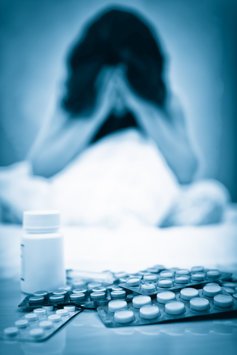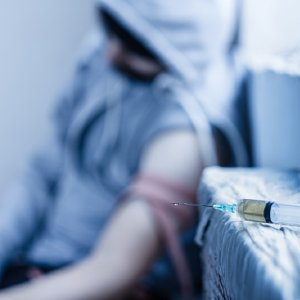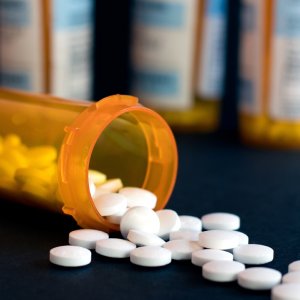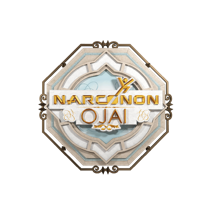The Threat of “Pill Mills” in America

Pill mills were a big part of what created the opiate epidemic, and many of them still exist today. How does one spot these criminal organizations?
While they are not discussed or reported on as much now as they were in the 2000s and the early-2010s, pill mills are still very active and quite harmful to American society. But what exactly is a pill mill? How do you spot one? What should you do if you come across one? And why does every American bear responsibility in seeing that these destructive organizations come to an end?
What is a “Pill Mill?”
Simply stated, a pill mill is a place where doctors hand out prescriptions for drugs (usually opiate painkillers), in an unethical or illegal fashion. Pill mills can also be places where doctors and pharmacists hand out the drugs themselves, also in an immoral or criminal manner. A pill mill can describe a doctor, clinic, or pharmacy that is prescribing and/or dispensing powerful narcotics in an inappropriate way and for non-medical reasons.
Sometimes, pill mills are given fancy names like “pain management center.” But no matter how these organizations and the individuals who run them present themselves, what they are doing is not only illegal, it is morally wrong. Pill mills intentionally sell drugs to people who should not be taking them, and such organizations do so solely to generate a profit, not to help people.
Signs of a Pill Mill
There are a few ways to spot a pill mill. Some of the signs of a pill mill are:
- Such clinics generally only accept cash payments from customers, to avoid a paper trail.
- Pill mills do not require medical records, x-rays, or even a physical exam to dispense drugs. There is never any proof given that the “patients” actually need the drugs for medical reasons.
- Customers get to pick their own medicine. The “doctor” (some of the individuals who run pill mills don’t even have a medical license), does not recommend a specific drug. They let the “patients” choose.
- Once a customer has selected a medicine they want to buy and the doctor has written a prescription for it, the doctor will tell the customer which pharmacy to go to. That is because each pill mill has to have one or more pharmacies that they are in league with, again to avoid a paper trail and to escape detection by the authorities.
- Pill mills often have security guards on staff, due in part to the considerable amounts of cash kept at such locations. Once a prescription is written and a customer has paid his cash fee to the doctor, the customer is told when to come back to the clinic. He is often forbidden from coming back before then.
There are other signs to look for, too. General shadiness, odd practices for a “medical center,” and a nervous, hidden, reclusive nature tend to permeate pill mills. When one looks closely, it is easy to tell a pill mill apart from a general practitioner.
Why Pill Mills are Harmful

The United States is mired in a terrible addiction epidemic. And while not every addictive substance used in America is an opiate drug, many of them are. Opiates are also the most lethal of the different types of drugs used. More people die every year from opiate drugs than from all other types of drugs combined. In 2018, there were about 67,300 fatal drug overdoses. About 46,800 of them were opiate overdoses.
Not all opiate overdoses are caused by prescription painkillers, and not all painkillers which are misused were obtained from pill mills. Nevertheless, pill mills contribute to the country’s addiction epidemic. There is a great deal of research that suggests pill mills were a significant factor in giving us the addiction crisis that exists today. And in states such as Florida and Texas, serious micro-epidemics were created in specific geographic regions because of these criminal organizations.
Pill mills are criminal, dangerous organizations that feed the addictions of tens of thousands, maybe even hundreds of thousands of addicts. In a lot of ways, buying drugs from a pill mill is no different from buying drugs on the street from a drug dealer.
What to Do if Your Loved One is Getting Drugs from a Pill Mill
If you have a loved one who is addicted to drugs and who is getting their supply from a pill mill, you must act fast to prevent any further harm. First, you have to get your loved one help. That is priority number one. Addiction is a potentially fatal crisis. According to the National Institute on Drug Abuse, about 128 people die every day from opiate overdoses. Don’t let your loved one become just another statistic in the epidemic that is this country’s drug problem.
So the first step is to get your loved one help via an addiction treatment center. Try to get them into a residential center if you can, as residential programs have the necessary facilities to effectively tackle both the physical and the psychological aspects of addiction.
Once your loved one is safely in treatment, please report the pill mill to the authorities. You can call your local police department to file this report, but better yet, you should submit a statement to the Drug Enforcement Administration. The DEA is tasked with tackling America’s drug problem, and busting pill mills is a big part of that.
The worst thing you can do is nothing. Remember, addiction is a life or death matter. Even if your loved one doesn’t seem willing at first to seek help, please continue working with them until they are willing to go to a rehab center. And if you need help at any step along the way, please don't hesitate to contact Narconon Ojai.
Sources:


